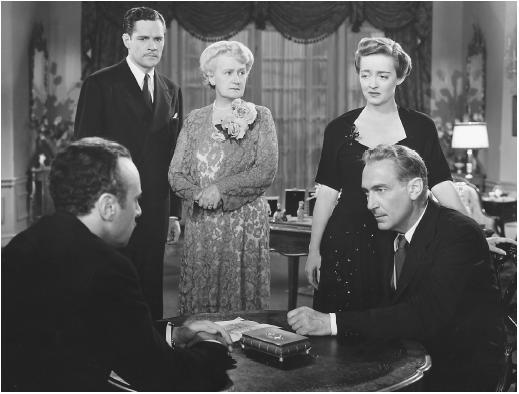I watched Watch on the Rhine late last night, engaging in one of my favorite and oldest habits–sobbing at the movies. Because my current political fears are rooted in the rise of fascism in Europe in the 1930s and my earliest faint yet determinative political memories are of the blacklist and the Army/McCarthy Hearings, I am firmly of the opinion that Hollywood movies from the 1930s and 40s, particularly Warner Brothers movies, should be required viewing right now for anyone considering how to address and shape a large audience towards a sense of solidarity across ethnicities and against fascism and big money–Warner Brothers’ films of that period were among the most overtly political of the major film studio product, they celebrated the immigrant experience and the contribution of immigrants to American culture, and they were among the first studio films to depict the impact of fascism and the Nazis as specific enemies.
Watch on the Rhine is a 1943 film of a 1940 play by Lillian Hellman and the film makes few concessions to the movies–almost everything takes place in one house, on about three room sets onto which people walk in and out of doors as they had done on the stage.
Some of the acting may seem quaint in some way to people unfamiliar with the era though they are deeply, doubly familiar to me–I grew up watching these films often several times a week on TV on WOR-TV’s Million Dollar Movie program, and I grew up around adults sort of like the ones portrayed and hearing stories that make this one recognizable and credible. The central figures are rivetingly and simply played by Paul Lukas as a German anti-fascist fighter, in ill health and damaged by a decade of resistance and flight across Europe, and his family, including his wife, played by Bette Davis, an American woman from a notable and wealthy family in Washington DC but who has shared her husband’s ideals and the life of poverty and danger these ideals led them to, and how, in a few swift strokes, the war and the danger of the Nazis are brought into the center of American privilege, safety, comfort, and wealth.

The film is unrelievedly melancholy for a Hollywood film, and also, though soberly, a call to arms and to self-sacrifice in the cause of freedom against the coming battle — Hellman wrote Watch on the Rhine in 1940, following the Nazi-Soviet Non-Aggression Pact of August 1939
The action takes place in the period between the Munich Agreement of 1938 and Pearl Harbor at the end of 1941, when America had to shaken from a twenty year period of isolationism. That is, it takes in the time before the cataclysm, which was foreseen but whose form was unimaginable.
This morning I awoke to the unrelievedly bad news of the day, the fact that the trump mob could damage the CIA, endanger National Security, and move inevitably towards putting political opponents on trial within months (before the 2020 election for sure) weighs heavily against the background of Brexit chaos and so on and so on. Though I have keyed my work of the last two years to the daily news, I am at the moment stymied, silenced, not sure where to grab on to and looking at contemporary art and culture for whether any of it is playing the role played by commercial film product like the Warner Brothers films.
The America created by the propaganda machine of Warner Brothers and the other big companies, mostly run by first and second generation Americans, of scrappy immigrants, corrupt politicians and the idealistic politicians, press, and the occasional rich person with a conscience who battle for justice and truth and something called America that is still imbued with idealism is not a bad place to spend some time–while someone writes their PhD thesis on Game of Thrones as a critical reflection on the resurgence of fascism and despotism across the world at a time of climate crisis, a thesis which I will skim with interest because I’m sure no will be surprised I didn’t watch it except for the most recent episode on the Seth Meyers Show where he and Leslie Jones watched the last episode together and howled with laughter.
*
Further information on Watch on the Rhine Note that the screenplay was written by Dashiell Hammett with additional scenes and dialogue by Lillian Hellman.
To see Bette Davis talk about her role and the film on the Dick Cavett Show in 1971.
A curio: a radio version of the play, with Paul Lukas, aired in 1946.
Warner Brothers films of the era with an anti-fascist narrative include: Confessions of a Nazi Spy (1939), Espionage Agent (1939), Edge of Darkness (1943), Action in the North Atlantic (1943), Northern Pursuit (1943), Passage to Marseille (1944), Mr. Skeffington (1944—a film whose principal theme is the cost of female vanity but which has an anti-Nazi plot twist), The Mask of Dimitrios (1944), To Have and Have Not (1944), and, most notably, Casablanca (1942).
Even though my interest currently is in the Depression and World War II and Film Noir post-War era, the full list of Warner Brothers movies includes so many great and very entertaining films, with a sense of social consciousness extending even to films produced in the 1970s and 80s.
